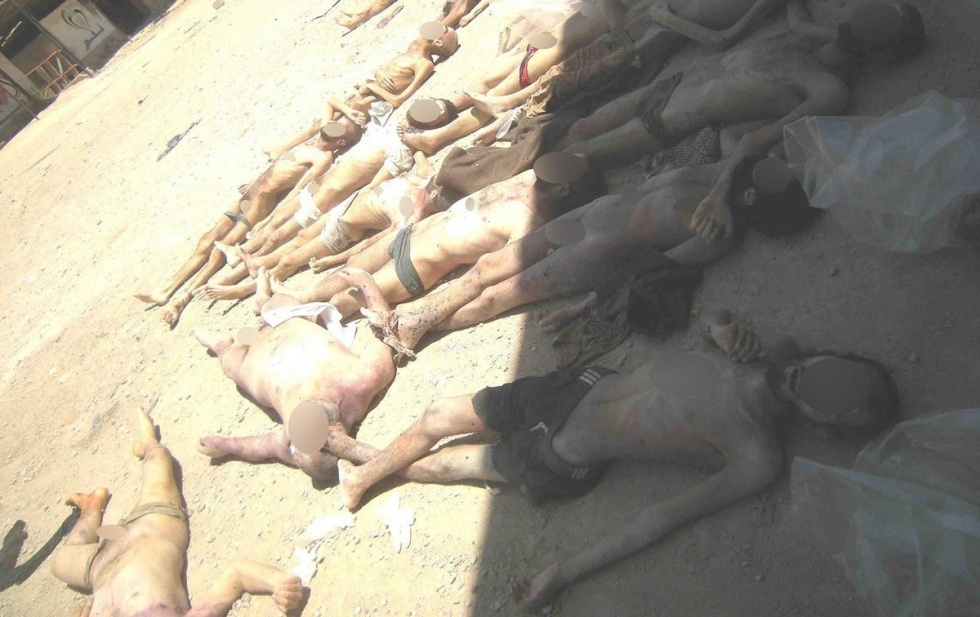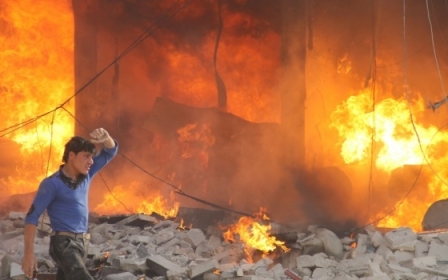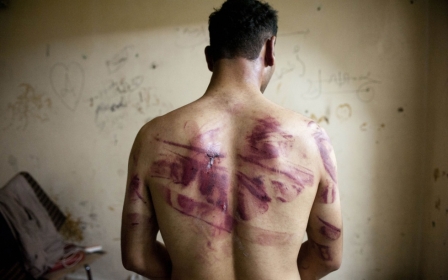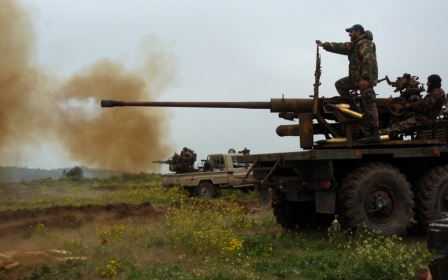Images of torture in Syria emerge as ICC summons vetoed

Turkey's Anadolu Agency on Thursday released photos purportedly documenting torture by the Syrian government, on the same day efforts to bring Syria before the International Criminal Court (ICC) were blocked by China and Russia.
Referring to the images at a press briefing on Thursday, US State Department spokesperson Jen Psaki condemned the failure to bring the Syrian government before the ICC.
“As the world looks at these photos and the range that have been out there, these atrocities are exactly why we have supported efforts like the one that occurred in the UN Security Council today, which was a vote on a resolution to refer the Syrian regime to the ICC."
The Anadolu Agency said it would normally not share images this graphic.
''Although the released images are against the Anadolu Agency's editorial policy, Anadolu Agency has need for sharing the Syrian regime's ongoing inhuman torture with the public'' it said in text accompanying the photos.
The photos, which AA says are from Damascus, show the bodies of people, including children and the elderly, who have been subjected to "inhuman torture with sharp objects" and corpses "whose eyes were carved".
Joshua Landis, the head of the University of Oklahoma’s Centre for Middle East Studies, told AA that the Assad government was responsible for the torture in the images.
“Now that the civil war has started, [torture has] obviously gone into industrial production,” said Landis. “Clearly there are a lot of people being executed in these prisons.”
Responding to the moves to prevent Syria being taken to the ICC, he said that ”the Russians basically have no incentive to allow the Europeans to do anything, especially with all the problems regarding Ukraine.
“Right now the Russians are going to exercise every opportunity to block anything that comes from the West.”
When previous images of alleged torture have been distributed by media, supporters of the Syrian government have been sceptical of their authenticity, also noting that they often originate from countries hostile to Assad such as Turkey or Qatar.
Aid access
UN Secretary-General Ban Ki-moon said Thursday that humanitarian access in Syria was worsening, blaming the government in particular but also armed rebels in a third report on the matter.
Ban said Damascus was still stopping aid convoys from crossing into Syria from Iraq, Jordan and Turkey in violation of Security Council Resolution 2139 adopted in February.
Cross-border access would deliver aid to millions of Syrians in regions controlled by the armed opposition.
Ban called on the Council to "urgently consider what steps it will now take to secure compliance with its demands," including lifting sieges and opening cross-border points.
The report relating to the period from April 22 to May 19 said more than 3.5 million Syrians continue to have "unpredictable and woefully inadequate" access to humanitarian assistance.
Meanwhile the world's chemical watchdog said Thursday that the last of Syria's chemicals agents are packed and ready to be taken to Latakia port and out of the country when the security situation permits.
Syria has already shipped out 92 percent of its stockpile.
Middle East Eye propose une couverture et une analyse indépendantes et incomparables du Moyen-Orient, de l’Afrique du Nord et d’autres régions du monde. Pour en savoir plus sur la reprise de ce contenu et les frais qui s’appliquent, veuillez remplir ce formulaire [en anglais]. Pour en savoir plus sur MEE, cliquez ici [en anglais].




